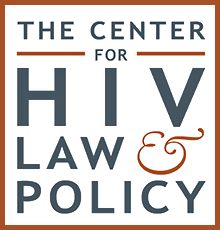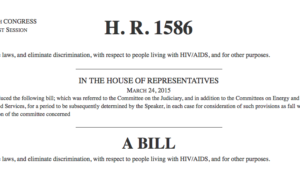Overview
Texas was the first state in the US to repeal its HIV-specific criminal law, doing so in 1994. No specific law has since been introduced; however prosecutions occur under general criminal provisions for perceived HIV ‘exposure’ and alleged transmission. Texan courts have consistently handed out lengthy prison sentences, including for acts which carry no risk of transmission, making people living with HIV in Texas particularly vulnerable to the impact of criminalisation.
The previous law made it a felony offence, punishable with up to ten years’ imprisonment and a fine, for someone living with HIV to intentionally ‘transfer bodily fluids’ to another without consent. Drafted in broad terms, it is reported that this offence was enforced several times in cases ranging from perceived ‘exposure’ to sexual partners to scratching police officers. Little information is publicly available on the process of reform of this law, though it is known that it was repealed through an omnibus criminal reform bill. It is not clear whether the exclusion of the HIV-specific provision in the reformed law was by design or by omission.
Notwithstanding the repeal of the HIV-specific law, prosecutions of people living with HIV continue under general criminal laws, principally aggravated assault and attempted murder. In Texan law, ‘aggravated assault’ is defined in terms of causing ‘serious bodily injury’ or using a ‘deadly weapon’ in an assault. The offence carries a penalty of two to twenty years’ imprisonment and a fine, increased to a maximum of 99 years if committed against a security officer, a child, or without consent.
The courts have found that the bodily fluids of people living with HIV can be considered a ‘deadly weapon’ for the purposes of this offence, on the basis that ‘exposure’ to these fluids could result in the transmission of a ‘serious’ disease. This includes perceived ‘exposure’ to semen through unprotected sex, as determined by the Court of Appeal in the 2006 case of Mathonican v State and affirmed in subsequent cases as recently as 2018, as well as to saliva through spitting or biting, which has been the basis for several prosecutions for aggravated assault. Concerningly, the courts have routinely convicted people for conduct involving little to no risk of transmission, including spitting and biting, while ‘exposure’ to semen has been found even where the sex in question has not involved ejaculation. In effect, the law in Texas criminalises perceived ‘exposure’ to bodily fluids regardless of the transmission risk from the act, which is not a required element of the offence.
Charges of attempted murder have also been successfully brought against people living with HIV where prosecutors were able to introduce evidence which they claim shows that not only did the accused ‘expose’ someone to their bodily fluids, but they also had an intention to kill. For instance, a 1992 case saw a person living with HIV who spat on a prison guard convicted of attempted murder, despite apparently highly disputed evidence (see the CHLP report linked below for further details on this case).
Other laws have also been used to prosecute perceived ‘exposure’, including harassment of a public servant which was the basis for a 2019 conviction. In this case a man was sentenced to 12 years’ imprisonment for spitting on a police officer during an arrest.
In addition to factoring in perceived HIV ‘exposure’ in the commission of a general offence, HIV status can also be considered in the sentencing stage for people convicted of offences such as sexual assault. This results in people living with HIV being liable to higher prison sentences than others for perceived blameworthiness for their conduct.
The laws of Texas also permit health officials to impose restrictions on people living with HIV, including isolation and quarantine, as well as mandatory testing if a public officer believes they may have been ‘exposed’ to an STI, including HIV, by an individual.
It is difficult to establish exactly how many cases of HIV criminalisation there have been in Texas due to the fact that prosecutions are brought under several general criminal provisions which do not directly apply to HIV, though we are aware of more than 20 case reports.
There has been little development in the law on HIV criminalisation since the 1994 repeal. In 2015, several bills were presented in the Senate in an attempt to bolster state HIV laws to aid law enforcement to access medical records for use in prosecutions and require testing for certain offences. Ultimately these bills failed to be adopted. In 2022, a state-wide coalition, Texans Living With HIV, was formed to advocate for the rights of people living with HIV.
For a detailed analysis of HIV criminalisation in Texas, as well as all other US states, see the Center for HIV Law and Policy report, HIV Criminalisation in the United States: a Sourcebook on State and Federal HIV Criminal Law and Practice.
Laws
Texas Statutes § 22.02
Aggravated assault
(a) A person commits an offense if the person commits assault as defined in Sec. 22.01 and the person:
(1) causes serious bodily injury to another, including the person’s spouse; or
(2) uses or exhibits a deadly weapon during the commission of the assault.
(b) An offense under this section is a felony of the second degree, except that the offense is a felony of the first degree if:
(1) the actor uses a deadly weapon during the commission of the assault and causes serious bodily injury to a person whose relationship to or association with the defendant is described by Section 71.0021(b), 71.003, or 71.005, Family Code;
(2) regardless of whether the offense is committed under Subsection (a)(1) or (a)(2), the offense is committed:
(A) by a public servant acting under color of the servant’s office or employment;
(B) against a person the actor knows is a public servant while the public servant is lawfully discharging an official duty, or in retaliation or on account of an exercise of official power or performance of an official duty as a public servant;
(C) in retaliation against or on account of the service of another as a witness, prospective witness, informant, or person who has reported the occurrence of a crime;
(D) against a person the actor knows is a process server while the person is performing a duty as a process server; or
(E) against a person the actor knows is a security officer while the officer is performing a duty as a security officer; (…)
Texas Statutes Attempted murder
§ 15.01 Criminal attempt
(a) A person commits an offense if, with specific intent to commit an offense, he does an act amounting to more than mere preparation that tends but fails to effect the commission of the offense intended.
(b) If a person attempts an offense that may be aggravated, his conduct constitutes an attempt to commit the aggravated offense if an element that aggravates the offense accompanies the attempt.
(c) It is no defense to prosecution for criminal attempt that the offense attempted was actually committed.
(d) An offense under this section is one category lower than the offense attempted, and if the offense attempted is a state jail felony, the offense is a Class A misdemeanor.
§ 19.02 Murder
(…)
(b) A person commits an offense if he:
(1) intentionally or knowingly causes the death of an individual;
(2) intends to cause serious bodily injury and commits an act clearly dangerous to human life that causes the death of an individual; or
(3) commits or attempts to commit a felony, other than manslaughter, and in the course of and in furtherance of the commission or attempt, or in immediate flight from the commission or attempt, he commits or attempts to commit an act clearly dangerous to human life that causes the death of an individual.
(c) Except as provided by Subsection (d), an offense under this section is a felony of the first degree.
Further resources
Not all laws used to prosecute people living with HIV in this state are included on this page. For a comprehensive overview and analysis of HIV-related criminal and similar laws and policies, visit The Center for HIV Law and Policy








